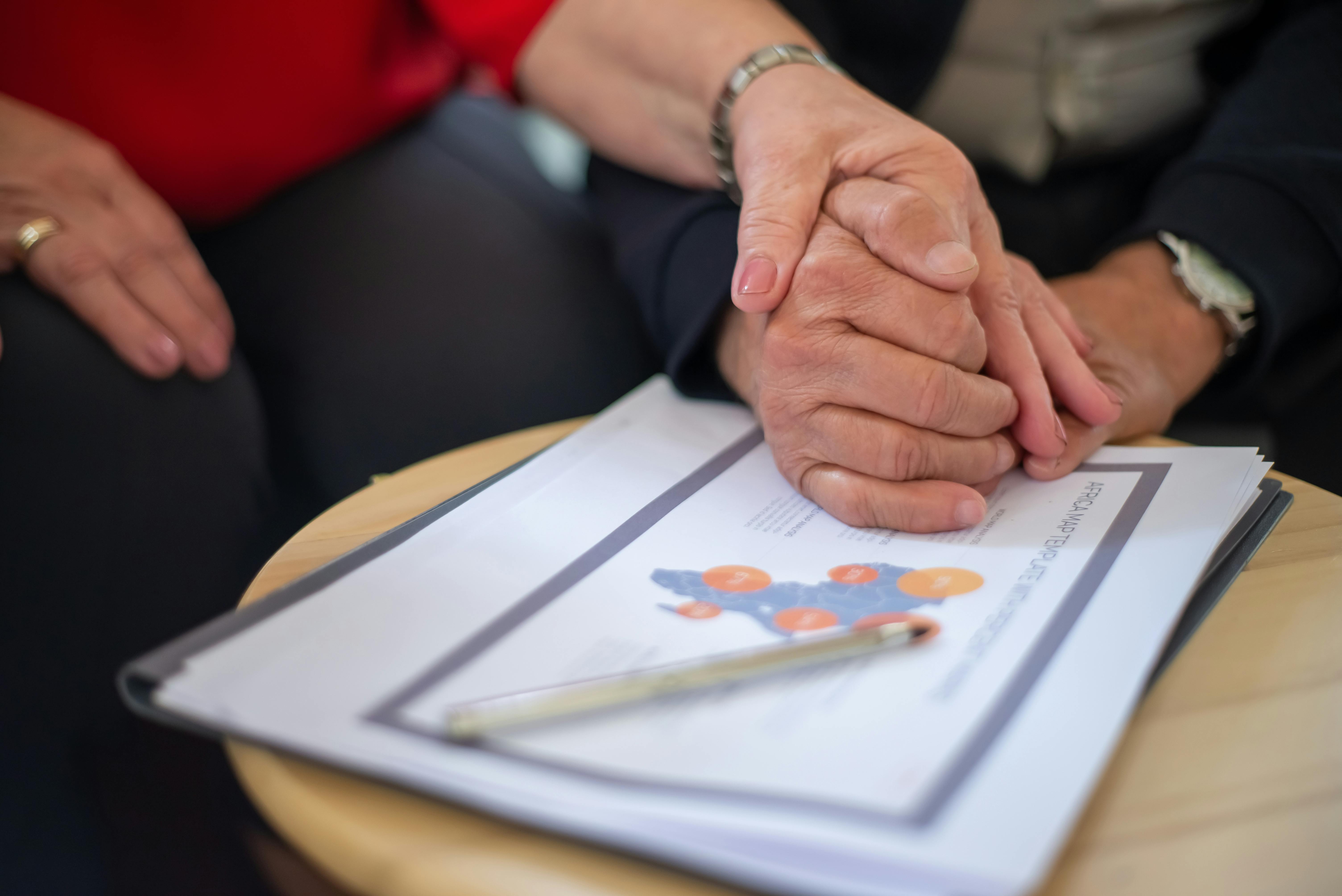Trust is the foundation of meaningful relationships and personal well-being. When trust is compromised, it can affect every aspect of life, from friendships to romantic partnerships.
Recognizing trust issues in yourself is the first step toward healing and building stronger connections.
This article explores ten distinct signs that reveal trust difficulties and provides actionable guidance on how to address them effectively.

Photo by Mikhail Nilov
Understanding What Trust Issues Entail
Trust issues involve ongoing challenges in believing others’ intentions and reliability. They often manifest as suspicion or fear of betrayal, even in situations where there is no clear reason for doubt.
These difficulties are commonly rooted in past experiences such as childhood adversity, previous betrayals, or mental health struggles like anxiety or post-traumatic stress.
Understanding the origin of these trust challenges helps frame practical approaches to change.
Many people with trust issues find themselves trapped in cycles of doubt and guardedness, which can undermine their ability to connect authentically.
Key Indicators That You May Have Trust Difficulties
Identifying trust-related patterns is crucial for personal growth. Some signs can be subtle, while others are more obvious and affect daily interactions.
Awareness of these signs helps you take early action before trust issues cause deeper relationship problems.
Below, we explore ten common behaviors and experiences that signal trust challenges.
Expecting Negative Outcomes From Others
One sign of trust struggles is consistently anticipating disappointment, even from those who have proven trustworthy.
This mindset leads to interpreting neutral or positive actions as potential threats or betrayals.
For example, assuming colleagues will let you down or a partner will be unfaithful despite no evidence creates unnecessary tension.
To counteract this, try consciously acknowledging past positive experiences and reminding yourself that not all outcomes are negative.
Persistent Doubts About People’s Intentions
Questioning others’ motives regularly can erode relationships over time.
Misreading simple gestures or messages as suspicious behavior generates constant anxiety and strain.
Building trust requires allowing space for honest communication rather than jumping to conclusions.
Practice pausing before reacting and seek clarification to avoid misunderstanding.
Difficulty Maintaining Close Relationships
Fear of emotional pain often prevents deep connections from forming or lasting.
People with trust issues may withdraw emotionally when relationships begin to grow more intimate.
Recognizing this tendency allows you to take small steps toward vulnerability, reinforcing bonds gradually.
Setting boundaries while remaining open helps build sustainable closeness.
Fear of Long-Term Commitment
Commitment anxiety can stem from previous betrayals or abandonment fears.
This often results in avoiding serious relationships or sabotaging them when they become more permanent.
Addressing this requires identifying the underlying fears and working through them with self-compassion or professional support.
Building trust in oneself is a critical foundation for trusting others.
Holding on to Past Resentments
Unforgiven hurts create emotional barriers that block trust rebuilding.
Clinging to grudges keeps old wounds fresh and prevents healing.
Working toward forgiveness, even if gradual, frees emotional energy and opens space for new trust to grow.
This does not mean forgetting but choosing to release the hold of past pain on current relationships.
Needing Excessive Control Over Situations
A desire to control others or circumstances often masks fear of betrayal or unpredictability.
Constantly checking on partners or micromanaging interactions can push others away and increase mistrust.
Learning to tolerate uncertainty and relinquish some control fosters healthier dynamics.
Try focusing on what you can influence and accepting what you cannot.
Experiencing Unjustified Jealousy
Jealous feelings without clear cause create unnecessary conflict and stress.
This behavior often signals insecurity rather than actual threats to the relationship.
Recognizing jealousy as an internal issue allows you to address self-esteem and communicate openly with others.
Building confidence reduces the need to seek constant reassurance.
Withdrawing Socially to Avoid Risk
Isolating yourself limits opportunities to build trust and increases feelings of loneliness.
Avoidance might feel safer but ultimately reinforces mistrust and fear.
Gradually engaging in social activities and forming new connections can counteract this tendency.
Start small by attending low-pressure gatherings or reaching out to familiar people.
Over-Agreeing to Please Others
People-pleasing often masks fear of rejection, leading to sacrificing personal needs to gain approval.
This behavior can create resentment and confusion in relationships.
Setting healthy boundaries and expressing honest feelings builds mutual respect and trust.
Practice saying no when appropriate and understanding that true acceptance does not require unconditional compliance.
Misreading Social Cues and Interactions
Interpreting neutral or positive situations as threatening undermines trust development.
This can lead to unnecessary defensive or hostile responses.
Improving emotional awareness and perspective-taking helps in accurately understanding others’ intentions.
Ask for feedback and clarify doubts instead of assuming the worst.

Photo by Kampus Production
Effective Methods to Build and Restore Trust
Trust issues can feel overwhelming, but they are not permanent. With intentional effort, you can improve your ability to trust and form meaningful connections.
Begin by acknowledging your patterns and seeking support when necessary, such as therapy or trusted friends.
Practice self-reflection, open communication, and patience as you work through fears and doubts.
Developing trust in yourself is the cornerstone of trusting others.
Practical Steps to Challenge Negative Expectations
Replace automatic negative assumptions with evidence-based thinking.
Keep a journal of positive interactions to counterbalance your doubts.
When you catch yourself expecting the worst, pause and ask if there is real proof or if it is a thought pattern.
This practice gradually shifts your mindset toward a more balanced outlook.
Building Clear Communication Skills
Directly addressing concerns reduces misunderstandings that fuel mistrust.
Use “I” statements to express feelings without blame.
For example, say “I feel uneasy when I don’t hear from you” instead of accusing.
This invites dialogue rather than defensiveness.
Learning to Set and Respect Boundaries
Healthy boundaries create safety and clarity in relationships.
Know your limits and communicate them clearly.
Respecting others’ boundaries in turn fosters mutual trust.
Boundaries are not walls but guidelines for respectful interaction.
Practicing Forgiveness and Emotional Release
Forgiving does not mean condoning hurtful behavior but freeing yourself from ongoing pain.
Engage in reflective exercises or therapy to work through unresolved resentment.
Emotional release creates space for healing and new trust to develop.
Regularly assess your feelings and progress toward letting go.
Allowing Vulnerability in Steps
Opening up gradually builds resilience and trust over time.
Share small personal details and observe reactions carefully.
Positive responses reinforce safety and encourage deeper connection.
Celebrate small successes in vulnerability as milestones.

Photo by hitesh choudhary
Engaging Examples of Overcoming Trust Challenges
Sarah had always expected her friends to let her down. She avoided making plans, assuming they would cancel or betray her confidence.
After recognizing this pattern, she started inviting one friend at a time to coffee and noted when they showed up reliably.
Over months, her trust grew through consistent positive experiences, and she was able to enjoy friendships more fully.
David struggled with jealousy in his romantic relationships, often accusing partners without cause.
Through counseling, he realized his insecurity stemmed from childhood abandonment fears.
By building self-esteem and communicating openly with his partner, he reduced his jealousy and strengthened their bond.
These stories demonstrate that trust issues can be addressed through awareness, effort, and support. Healing trust is a journey that leads to richer, more fulfilling relationships.


